The most common British slang term for alcohol is booze. This is the most widely used, generic term for alcohol. You also have more specific terms like “bevvy” which usually refers to beer or cider. Some British people also use the term “sauce” to refer to alcohol, usually in terms of large quantities.
Booze is by far the most universal and commonly used British slang term for alcohol.
Most other slang terms are much more specific and refer to specific kinds of drinks or even alcohol in more specific contexts.
Let’s find out more.
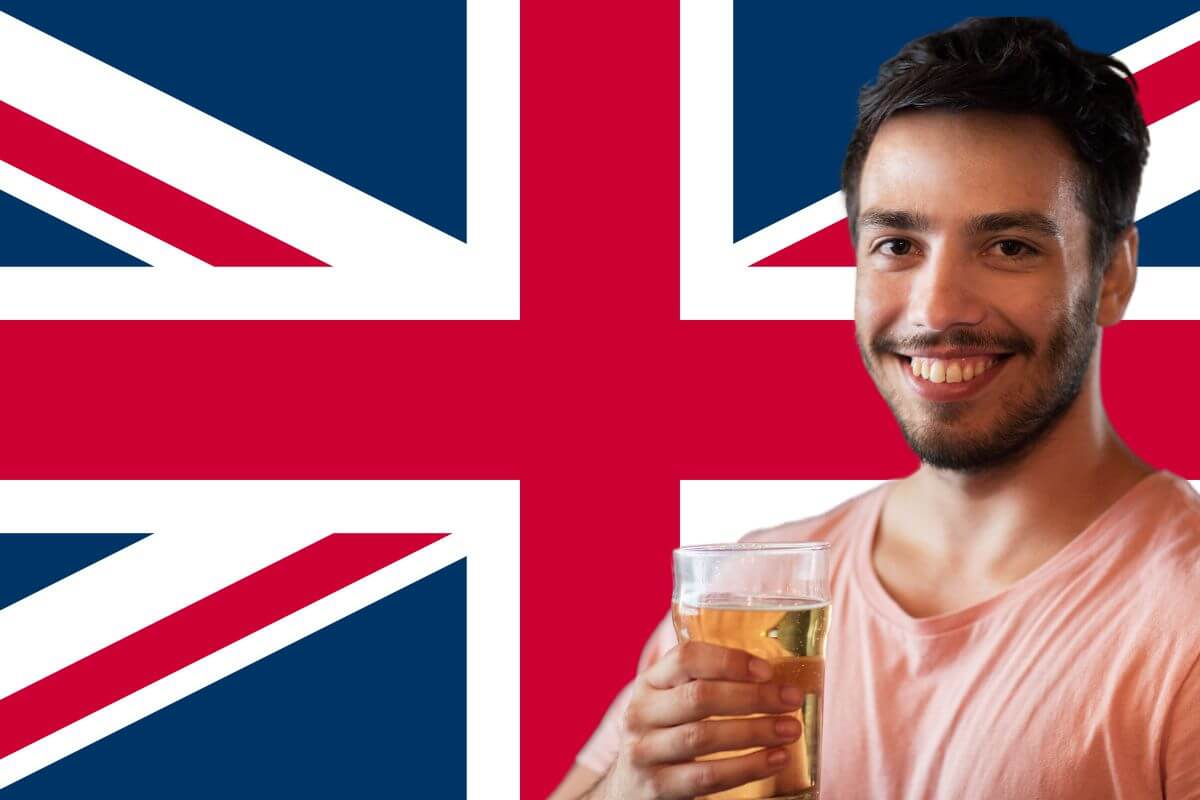
What do the British call alcohol?
The most widely used, all-purpose slang term for alcohol in Britain is “booze”.
Booze
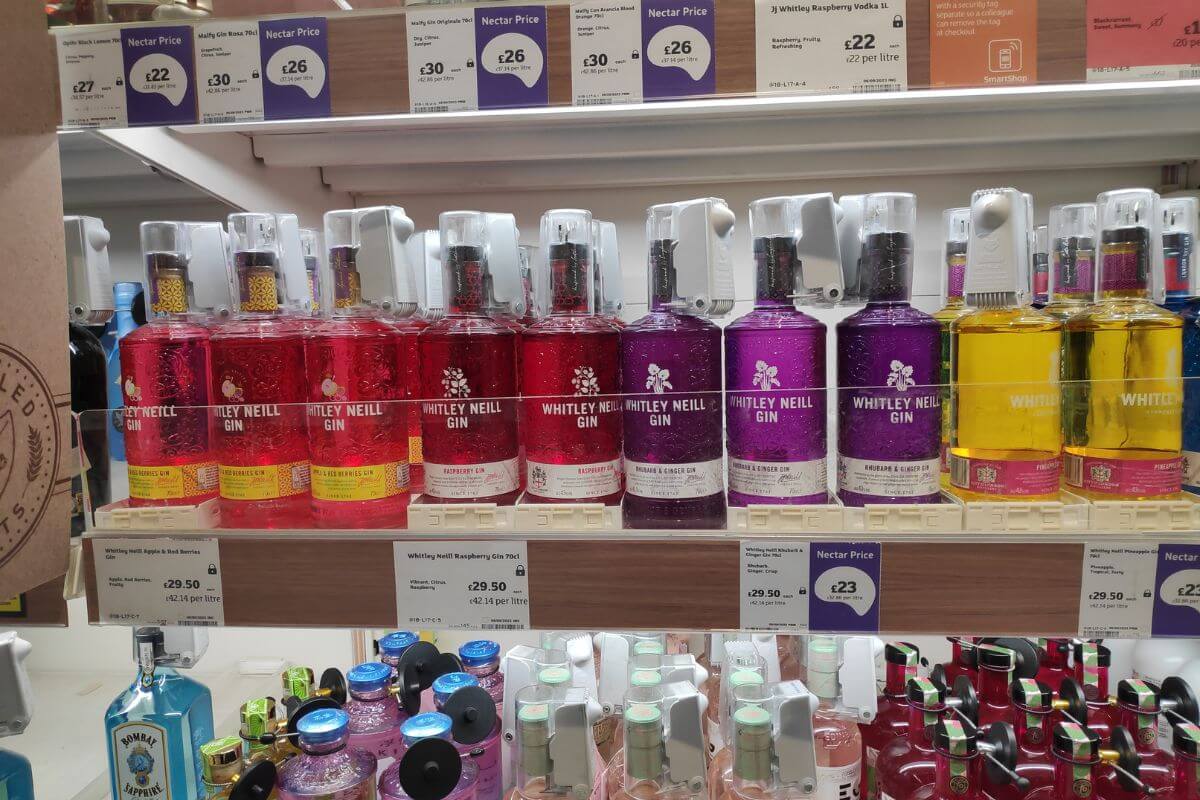
This one may not be unique to Britain, but it is extremely common and perhaps the only widely used slang term which refers to alcohol as a whole.
The finest wine down to the cheapest, store-brand beer is all booze.
If you want to go out and get really drunk you can get out “on the booze”, or if you want a quiet night in you can still get some booze in for a quiet one at home.
At the same time, there is a variety of other slang terms for more specific kinds of booze, or for more specific kinds of contexts in which you’re drinking it.
Bevvy
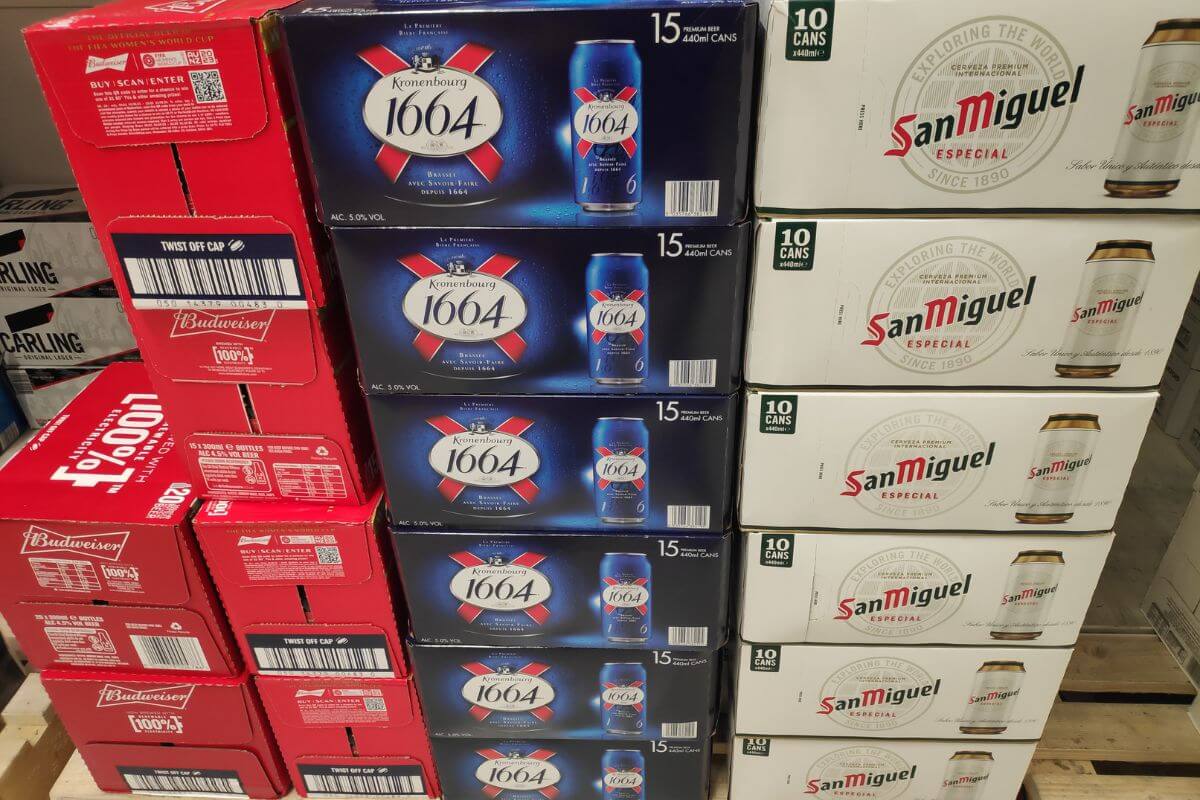
“Bev” or “bevvy” is perhaps the next most common one that you’ll hear used.
This is a shortened form of “beverage”, and most commonly refers to beer and cider.
It’s not something you would generally use to refer to wine or spirits, though this is not unheard of.
Tipple
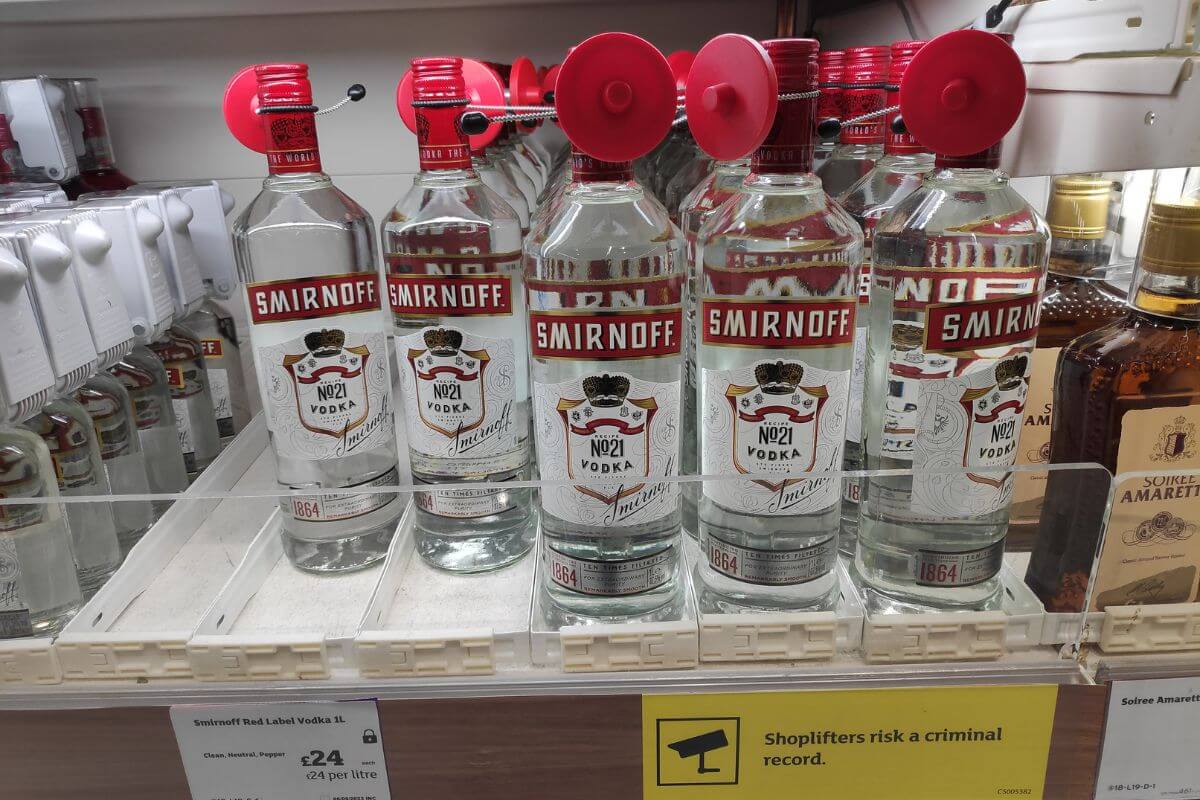
The more common slang term to refer to stronger drinks like wine, spirits or cocktails is “tipple”.
This perhaps skirts the edges of slang since it is so common and refers so specifically to a certain kind of alcohol.
Not only is it more limited to stronger drinks, it’s also the kind of thing you might say if you were just having one or two.
Sauce
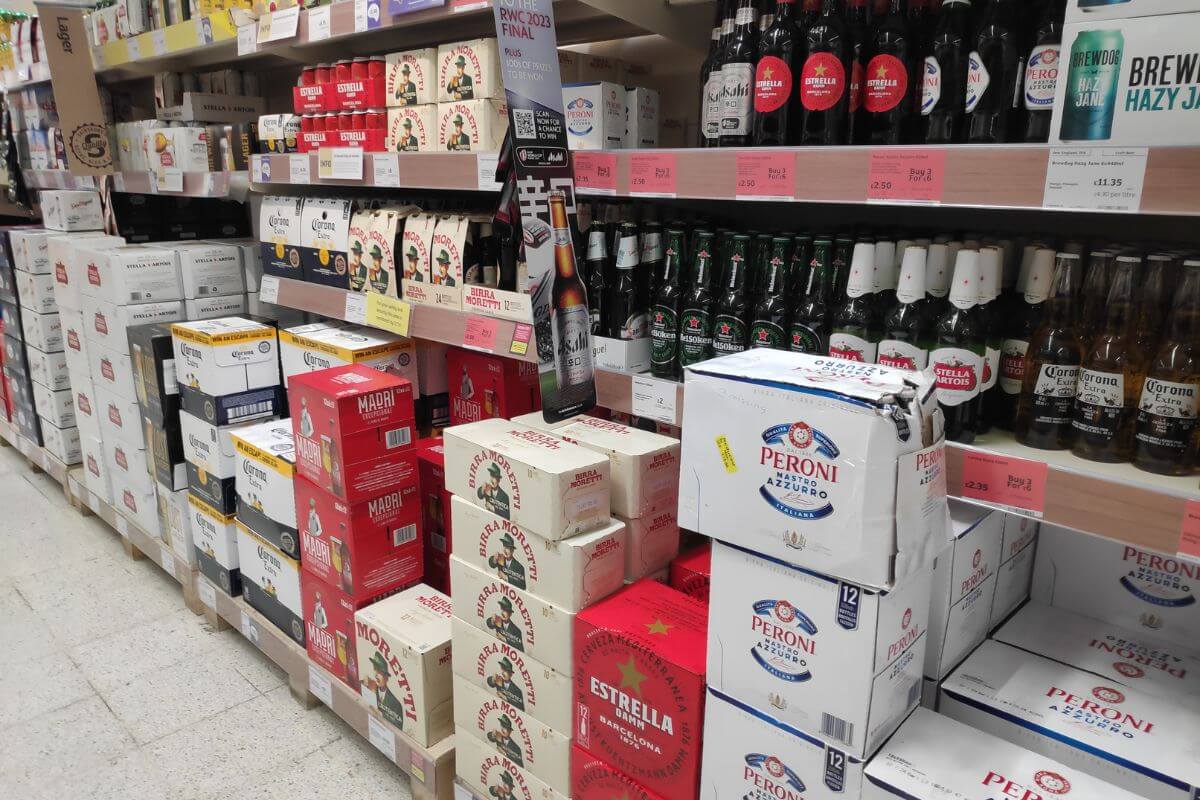
Another one that you’ll sometimes hear is “sauce”.
Sometimes, alcohol is referred to as sauce usually within the context of binge drinking.
When someone has gotten very drunk, you might say they are “lost in the sauce”.
This one is used in the U.S. as well as Britain.
The “sauce” is obviously alcohol, so some take the word itself just to mean alcohol regardless of the context.
Why do the British say booze?
Where do we get the most common British slang term for alcohol, then?
Unsurprisingly, it’s a very old term steeped in history. It ultimately derives from the Middle Dutch world busen, a verb meaning “drink to excess”.
That was then transmitted through to Middle English where it became bouse, which meant essentially the same thing.
It was still a verb.
The modern spelling of booze comes from some time in the 18th Century, as far as we can tell.
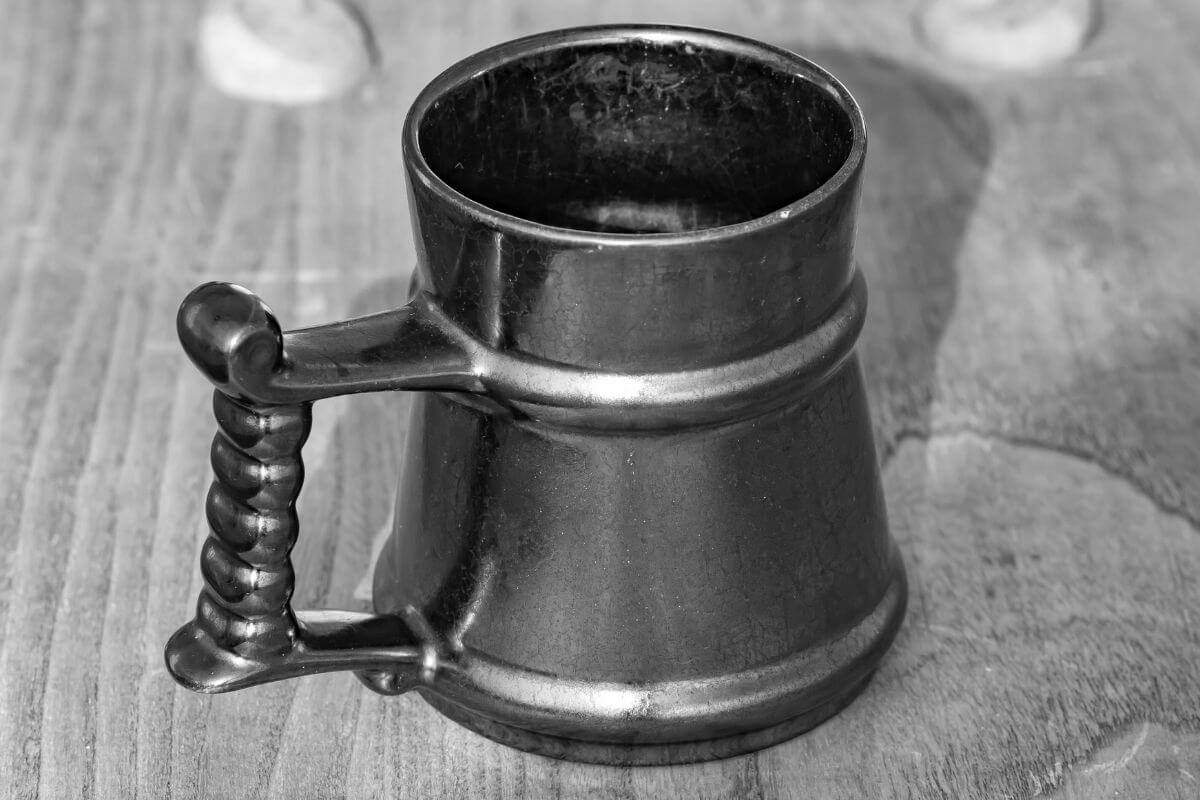
Again, it was still not quite in its modern sense yet. It was now an adjective, meaning “inebriated” or very drunk.
This somewhat fell out of use again until it was picked up in the early 20th Century when it finally settled on its noun form of “booze” meaning the alcohol itself.
Since then, it has spread to virtually every corner of the English-speaking world and is, without doubt, the most common universal slang term for alcohol in Britain.
Do the British say “bevvy”?

The British do indeed say bevvy, though it’s more of a specific term than just alcohol.
As I said, generally “bevvies” is the kind of thing young men say when they are going out to the pub for a few pints.
It’s usually reserved for beer and cider, and is not something you’ll hear used in any context.
The gender distribution is interesting, as it does seem it is far more likely to be a term used by men than women.
By extension, at least in people’s minds, men are more likely to drink beer or cider.
So, the British do say bevvy, but there are a couple of caveats to that.
You probably wouldn’t use the term “bevvy” to refer to going out for cocktails, or for having a neat glass of whiskey.
What else do the British call booze?
Sherbet
One other slang term you may hear in Britain for alcohol is “sherbet”.
This one is not quite as common as it once was, and is quite a lot more regionally specific than most of the other slang terms on this list.
You’re more likely to hear this in the south, particularly in London, than you are anywhere else.
Again, this one is most commonly used to refer to beer.
However, it can be more versatile than that and used in a wider variety of contexts.
Vino
In some cases, you might hear British people refer to wine as “vino”.
In Romance languages like French, Spanish and Italian, “vino” is simply the word for wine, so it has been taken on as a slang term in British English.
There is certainly no shortage of slang terms for booze, then, in British English.
That said, most of them tend to be very subtly specific.
Beer is one of the nation’s favorite drinks, unsurprisingly, so there are many slang terms which refer specifically to beer or adjacent drinks like cider.
“Tipple” might be used less commonly to refer to something like a cocktail or neat spirit.
In any case, booze is a good catch-all.
More in British Slang
- British Slang For Alcohol
- British Slang For Angry
- British Slang For Argument
- British Slang For Bad
- British Slang For Boss
- British Slang For Boy
- British Slang For Breasts
- British Slang For Butt
- British Slang For Car
- British Slang For Cat
- British Slang For Child
- British Slang For Cigarette
- British Slang For Coffee
- British Slang For Cold
- British Slang For Cool
- British Slang For Delicious
- British Slang For Diarrhea
- British Slang For Dog
- British Slang For Drunk
- British Slang For Easy
- British Slang For Expensive
- British Slang For Eyes
- British Slang For Face
- British Slang For Fat Person
- British Slang For Fist Fight
- British Slang For Flatulence
- British Slang For Food
- British Slang For Friend
- British Slang For Girl
- British Slang For Glasses
- British Slang For Going To Bed
- British Slang For Good
- British Slang For Good Luck
- British Slang For Goodbye
- British Slang For Gossip
- British Slang For Grandmother
- British Slang For Gun
- British Slang For Hair
- British Slang For Happy
- British Slang For Head
- British Slang For Helicopter
- British Slang For Hello
- British Slang For Horny
- British Slang For House
- British Slang For Hungry
- British Slang For Hurry Up
- British Slang For Husband
- British Slang For Idiot
- British Slang For Jail
- British Slang For Jerk
- British Slang For Job
- British Slang For Kiss
- British Slang For Knife
- British Slang For Loser
- British Slang For Lover
- British Slang For Lying
- British Slang For Menstruation
- British Slang For Money
- British Slang For Motorcycle
- British Slang For Mouth
- British Slang For No
- British Slang For Nonsense
- British Slang For Nose
- British Slang For Pajamas
- British Slang For Party
- British Slang For Police
- British Slang For Poor
- British Slang For Potato
- British Slang For Pregnant
- British Slang For Rain
- British Slang For Relax
- British Slang For Rich
- British Slang For Sailor
- British Slang For Sandwich
- British Slang For Scared
- British Slang For Sexy
- British Slang For Shoes
- British Slang For Silly
- British Slang For Soldier
- British Slang For Stomach
- British Slang For Surprised
- British Slang For Tea
- British Slang For Teeth
- British Slang For Telephone
- British Slang For Television
- British Slang For Testicles
- British Slang For Thank You
- British Slang For Thief
- British Slang For Tired
- British Slang For Toilet
- British Slang For Umbrella
- British Slang For Vacation
- British Slang For Vomit
- British Slang For Walking
- British Slang For Weird
- British Slang For Wife
- British Slang For Wonderful
- British Slang For Work
- British Slang For Yes
- British Slang Insults
- British Slang Quiz

